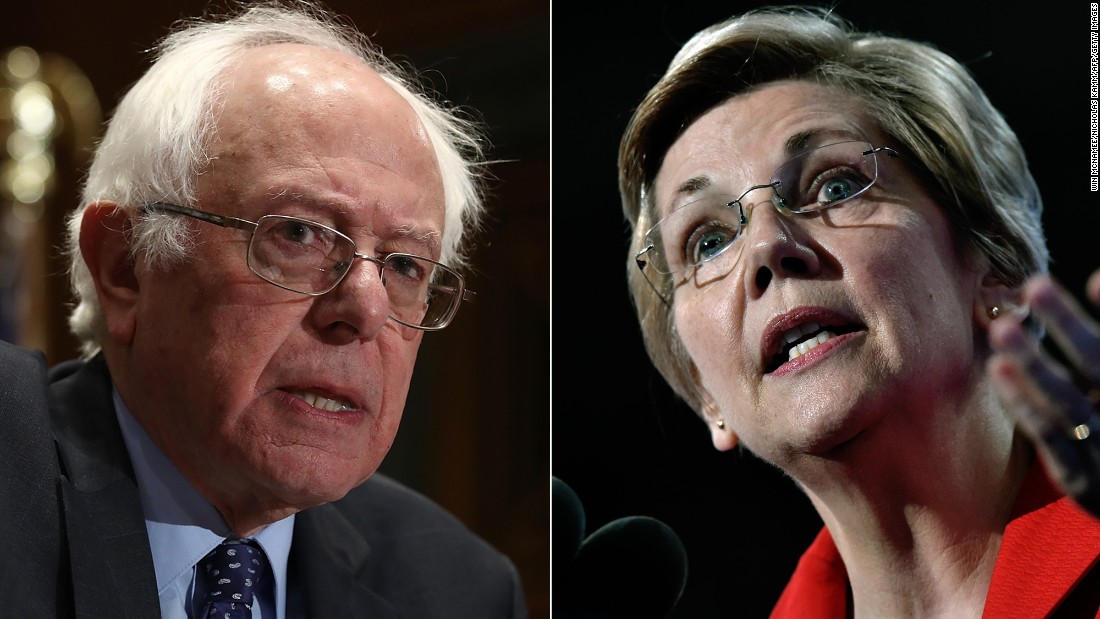
And yet, the pair are widely viewed to be competing for the same territory in a potential 2020 Democratic presidential primary. Not that anyone should be surprised. Both Sanders and Warren made their names railing at the excesses and failures of an increasing unequal economy -- one that voters across the ideological spectrum routinely describe as unfair or, in many cases, "rigged."
Polling from a variety of sources has for years now consistently turned up evidence of frustration rooted in decades of economic dislocation, spanning both Republican and Democratic administrations. In 2018, buoyed in part by the rise of the progressive left, we're beginning to see more Americans take a deeper look at the system underlying -- and, in some cases, feeding -- their anger: capitalism.
In a Fox News poll out this week, 36% of Americans said it would be a "good thing" for the country to "move away from capitalism to more socialism," while 51% called it a "bad thing." Most of the chatter of late has surrounded socialism, but the judgment rendered here on capitalism is just as interesting. Perhaps more. On the three previous occasions the question had been asked, support for a move had never surpassed 23% (2009) and the opposition always came in at no less than 64%.
Those numbers reinforced some of the takeaways from another recent headline-grabbing survey, from Gallup, which found that positive views of capitalism among 18- to 29-year-olds had plummeted this decade, from 68% in 2010 to just 45% in 2018.
The precipitous fall among younger people is easy enough to explain. Next month marks the 10-year anniversary of the knee-knocking height of the 2008 financial crisis. The government bailed out failing banks that September, then in 2009 passed more than $800 billion in stimulus spending. But homeowners facing foreclosure were mostly hung out to dry and the Great Recession settled in from there. For a certain cohort of Americans, the Wall Street meltdown and its legacy — the personal debt, the stagnant wages, etc. — is their foundational political memory and only lived experience.
Meanwhile, support for socialism, no matter how you slice and dice the demographics, has been mostly static over the past eight years. Even with the 18-to-29-year-old group, which went from 51% in 2010 to, yup, 51% in 2018.
But there's more to the story. Socialism has for a century at least been a loaded term, introduced typically as a kind of slur when applied to American politics. Those taboos are fading, but even now there is heated debate over whether Democratic candidates who identify as socialists (or democratic socialists or social democrats, etc.) risk alienating voters outside certain deep blue regions.
The jury is still out, even as a bumper crop of energetic and engaging (usually first-time) leftist candidates — some winning, some losing — have emerged to further confound pundits and political operatives. For further evidence, we look to the issues, where, jargon pushed aside, the message from the public has been easier to read.
A Reuters/Ipsos poll out Thursday found that nearly 85% of Democrats support a "Medicare for all" single-payer health care system. The policy had an overall backing of 70%, with 52% of Republicans (seriously) on board. The Fox News poll reported that 46% would look favorably on "the U.S. moving to a national single-payer health plan, often called Medicare for all." Only 31% said they were opposed.
So what is really fueling this shift in the polls (and at the polls) — is it the pull of socialism or the push, more like a shove, by the failures of capitalism?
The answer is ... yes. The two pieces are inextricable from each other. The calls to save capitalism are not entirely distinct from those to end it, but overlapping and, in some cases, actually complimentary.
Just ask Sanders and Warren.
No comments:
Post a Comment